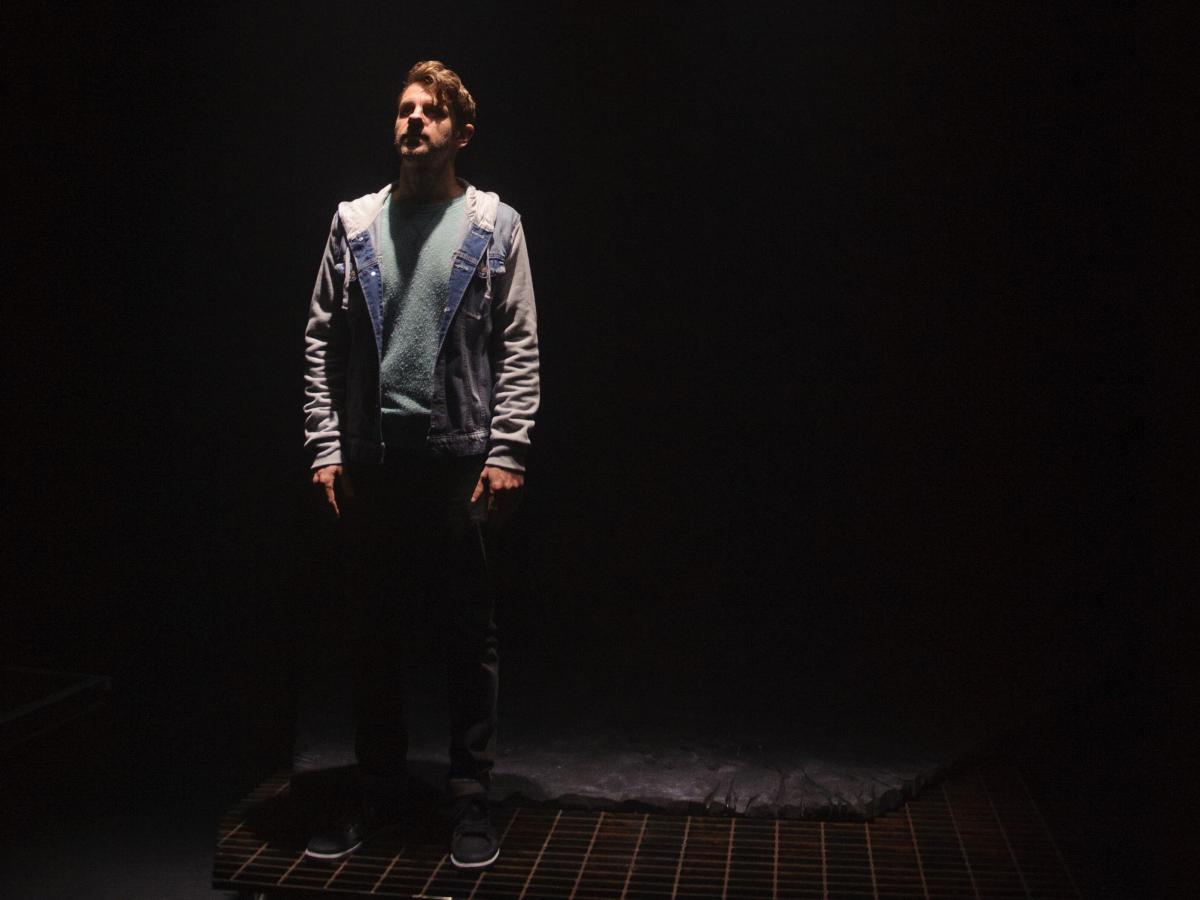Photo by Sarah Walker
One of drama’s great strengths is its ability to allow us to empathise with the plight of a stranger. In Elegy, by British playwright Douglas Rintoul, that stranger is a young Iraqi refugee whose war-torn home has become deadly for gay men such as himself.
As documented by photojournalist Bradley Secker – whose poignant photographs, exhibited outside the theatre, are one of the inspirations for the play – in the years after the US-led invasion in 2003, ‘sexual deviants’ and ‘perverts’ in Iraqi cities such as Mosul and Bagdad were regularly tortured and executed by militia groups and death squads, while coffee shops where they were thought to congregate were burnt down. Persecution of gays and lesbians has reportedly increased since the US withdrawal from Iraq in 2011.
Described by Rintoul as ‘a poem for lives lost and those in exile … a love letter … [and] an enquiry into universality,’ Elegy gently dramatises the plight of a gay Iraqi without ever descending into hectoring melodrama or pity-porn agitprop. Instead, his text – based on first-hand interviews with survivors as well as considerable research – is an illuminating act of storytelling which humanises the refugee experience; an issue to which many of us have become numb.
Told in the third person – a dramatic device which initially provides a degree of critical distance from the horrors which unfold, until the cumulative weight of events and a particularly shocking revelation results in a shared, stunned in-drawn breath among the audience – the narrative moves backwards and forwards through time, weaving a vivid and poetic tapestry of memories and events. From warm evocations of tenderness and intimacy to moments of terror and horror; from the security of home to a cold sequence of liminal spaces – an abandoned train platform, a wintry beach, a holding cell in a refugee camp – the play is broad-ranging, and beautifully written.
In this, its Australian premiere season, Rintoul’s text is admirably performed by Nick Simpson-Deeks, who conveys the constantly shifting emotions of the piece without ever descending into bathos or exaggeration. Director John Kachoyan directs with admirable restraint, knowing that overplaying the drama would be fatal; and the design elements – including a fractured streetscape by Rob Sowinski, dislocated from its rightful place and time and artfully lit; and Russell Goldsmith’s evocative composition and sound design, which occasionally overlaps certain scenes, disturbingly foreshadowing events to come – are beautifully integrated into the production.
Producers Lyall Brooks and Adam Fawcett of Lab Kelpie have worked for many months to bring Elegy to the Australian stage; it’s been well worth the wait. This is a finely polished, extremely accomplished and deeply moving piece of theatre; it deserves to tour widely.
Rating: 4 stars out of 5
Elegy
By Douglas Rintoul
Presented by Lab Kelpie and Gasworks Arts Park
Director: John Kachoyan
Sound design & composition: Russell Goldsmith
Lighting & set design: Rob Sowinski
Associate designer: Bryn Cullen
Performed by Nick Simpson-Deeks
A Midsumma Festival Premier Event
Studio Theatre, Gasworks Arts Park
19 January – 6 February





